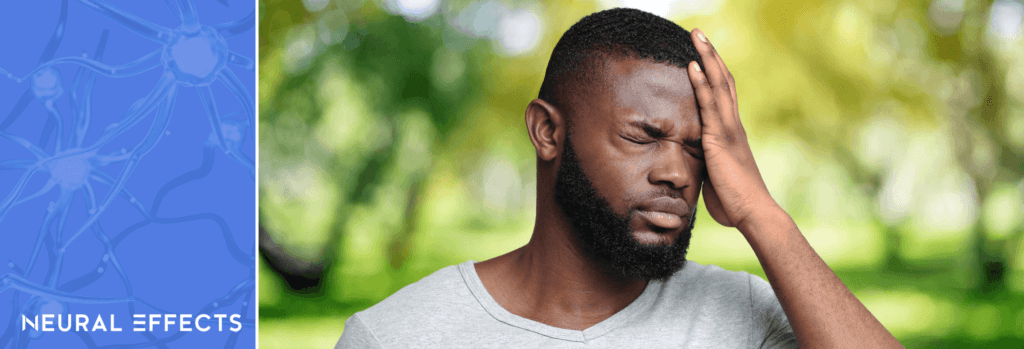Any time you hit your head, severely jostle it, or sustain whiplash, you’re at risk for developing a concussion.
In past decades, healthcare providers typically advised their patients to stay isolated in a dark room with minimal stimulation until their concussion symptoms went away. In other words: No listening to loud music, reading a book, or playing video games. This isolation was called cocooning, and the aim was to reduce the demands on the brain when it was vulnerable.
However, cocooning is now considered outdated advice. Recent research shows that not only does cocooning not help with concussion recovery, it may actually delay recovery.
At Neural Effects, our preferred approach to treat concussions is through active rehabilitation of the concussion. Our concussion treatment plan involves aerobic exercise combined with a variety of therapy types, such as cognitive therapy and physical therapy. You can safely begin this treatment as early as 48 hours after your concussion. This method is supported by several scientific studies showing that active rehabilitation can speed recovery from concussion in both children and adults.
This article will answer common questions regarding concussion treatment, such as:
- Who needs treatment for a concussion?
- What does treatment at a concussion clinic involve?
- How much does concussion treatment cost?
- What should you avoid in concussion treatment?
- Can concussions be treated at home?
- Where do I get concussion treatment near me?
If you live in Provo, Salt Lake City, or anywhere else in the Utah Valley area, we can help you recover from your concussion and reduce your chance of long-term symptoms. We are in network for most types of medical insurance. Schedule your evaluation today.
Do You Need Concussion Treatment?
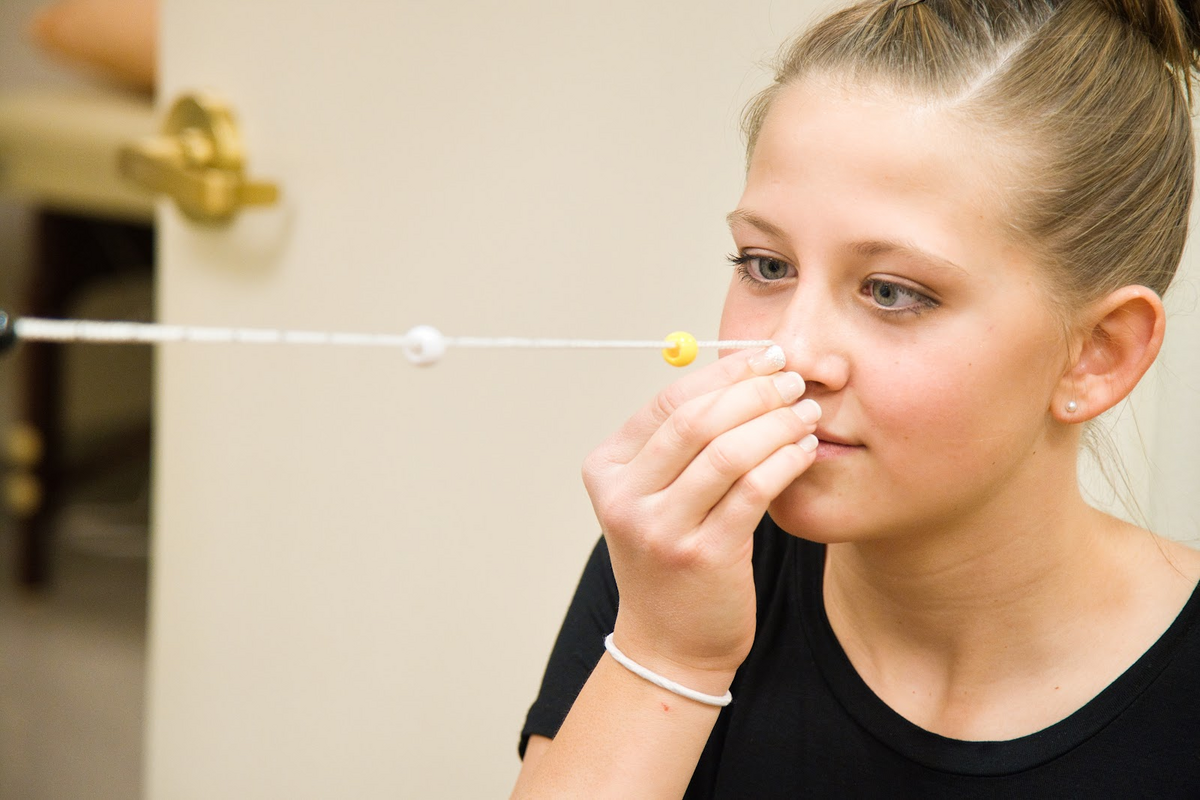
If you believe you may have suffered a concussion, seek medical help. While many people recover from a mild traumatic brain injury within two weeks without any treatment, some do not. Up to 30% of concussion patients develop persistent concussion symptoms (known as post-concussion syndrome) that do not go away until treated. Early diagnosis and treatment gives you a better chance at early recovery.
In addition, any head injury comes with the risk of more severe issues such as a skull fracture or a brain bleed that could require surgical intervention. Most people are not trained in differentiating between a life-threatening head injury and a concussion, so it’s best to verify your condition with a trained medical professional.
If you’re experiencing any of the following symptoms after head trauma, seek medical care immediately at your nearest emergency room:
- Loss of consciousness, even if only briefly
- Becoming confused and disoriented after the injury
- Any period of amnesia, or loss of memory regarding the event
- Worsening, severe headaches that do not go away
- Repeated vomiting or nausea
- Repeated seizures
- Slurred speech
- Severe drowsiness
In addition, if you suffer a second concussion within two days of your first concussion, seek medical attention immediately. Some concussion patients with repeat concussions in a short time frame develop second impact syndrome (SIS), which is a serious injury that could result in permanent brain damage or, in rare cases, death. Even if you don’t develop SIS, multiple concussions increase the chance you’ll suffer from lingering vision problems, memory problems, headaches, brain fog, emotional changes, and more.
Finally, if you suffered the injury at high speed (for example, in a car accident or a sport like skiing), it’s very important to be examined by a medical professional.
Even if you’re not experiencing any signs of severe TBI, you will still benefit from being seen by a healthcare professional. The best place to get this type of assistance is with an expert at diagnosing and treating concussions, such as the team at Neural Effects, our concussion clinic.
Common Symptoms after a Concussion
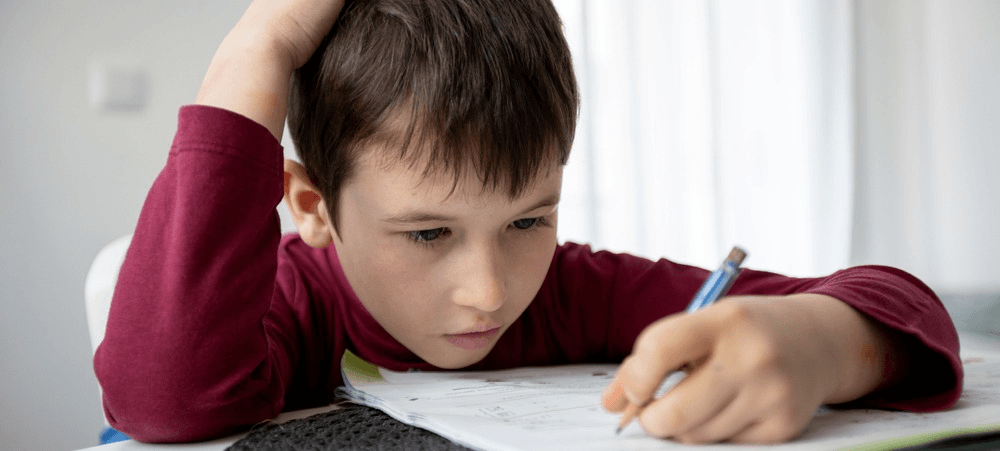
The signs of a concussion may be subtle and more wide-ranging than you’d expect. To further complicate matters, some symptoms can appear immediately after the injury, while others don’t develop until a few hours or even days later.
In addition, symptoms may also change during your recovery. For example, you may have a headache after the injury, feel off-balance the next day, and then start to experience problems concentrating a week or two later. All of these symptoms can be related to your concussion and need to be treated.
Here’s a list of the most common symptoms of a concussion:
- Sensitivity to light or noise
- Dizziness or balance problems
- Feeling tired or having no energy
- Headaches
- Nausea or vomiting (typically soon after the injury)
- Brief loss of consciousness at the time of injury
- Persistent neck pain
- Blurry or double vision
- Brain fog
- Memory loss
- Balance problems
- Difficulty concentrating
- Difficulty learning and remembering new information
- Anxiety or nervousness
- Irritability or being easily angered
- Depression
- Mood/personality changes
Treatment at a Concussion Clinic
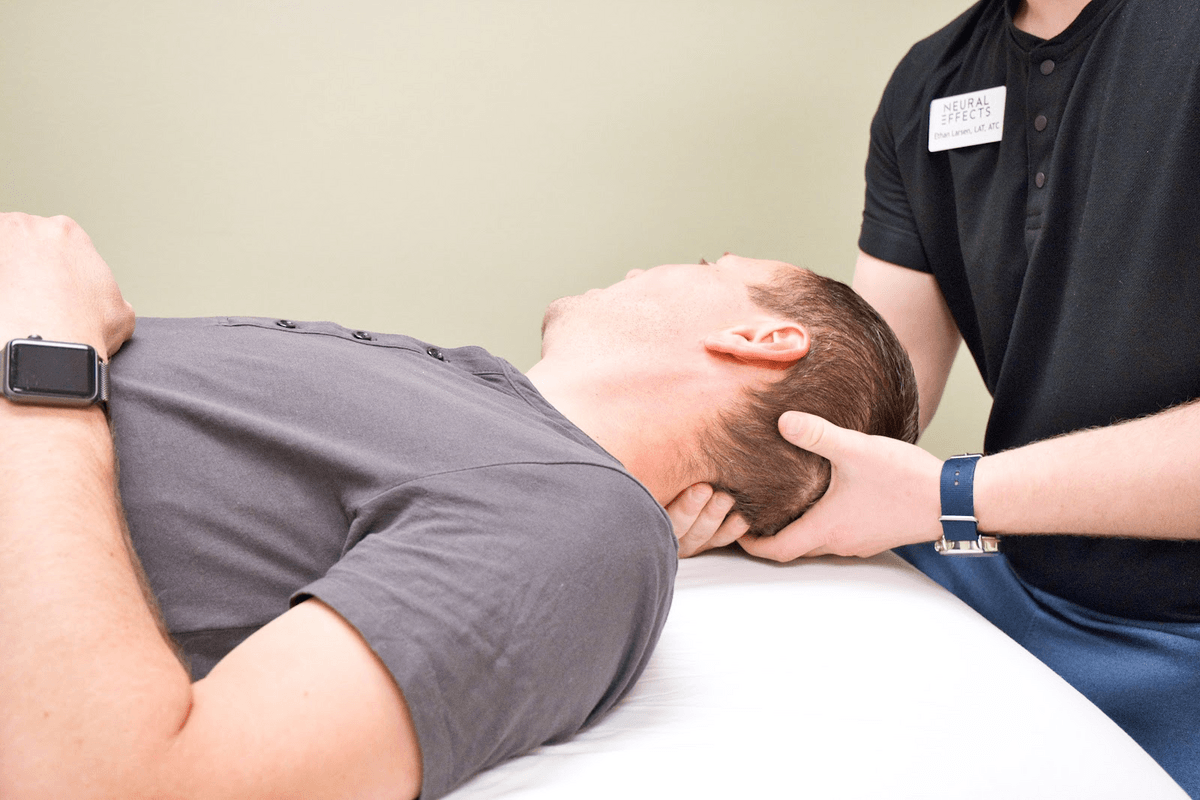
Although the best place to get assessed after a concussion is a concussion clinic, not all clinics offer the same diagnosis process and treatment options. It’s important that you (or a trusted friend or relative) take time to determine the best options for you.
Here are some aspects to consider:
- Type of assessment
- Type of treatment
- Sports concussion services
Type of Assessment
Good concussion clinics offer a comprehensive assessment of your injury. At the moment, there isn’t a single test that can diagnose concussions, so doctors rely on a variety of exams to understand how the injury affected your brain. These include cognitive exams to test your concentration, memory, and language skills, plus physical exams to test your vision, balance, and reaction time, to name just a few.
Some doctors may also request a CT or an MRI scan. These imaging tools can’t actually diagnose a concussion, but they are useful to identify moderate to severe traumatic brain injuries, such as skull fractures or bleeding and swelling in the brain.
Further reading: Do CT scans show concussions?
At Neural Effects, we start by asking our patients to rate their symptoms from zero (no symptoms) to six (worst possible). In addition, our therapists administer a series of physical exams, including a cervical spine exam and an assessment of your balance. With this information and whatever we glean from your medical history, we have a better picture of how the concussion has affected your brain and can implement a treatment plan suitable for you.
Further reading: How to test for a concussion
Type of Concussion Treatment
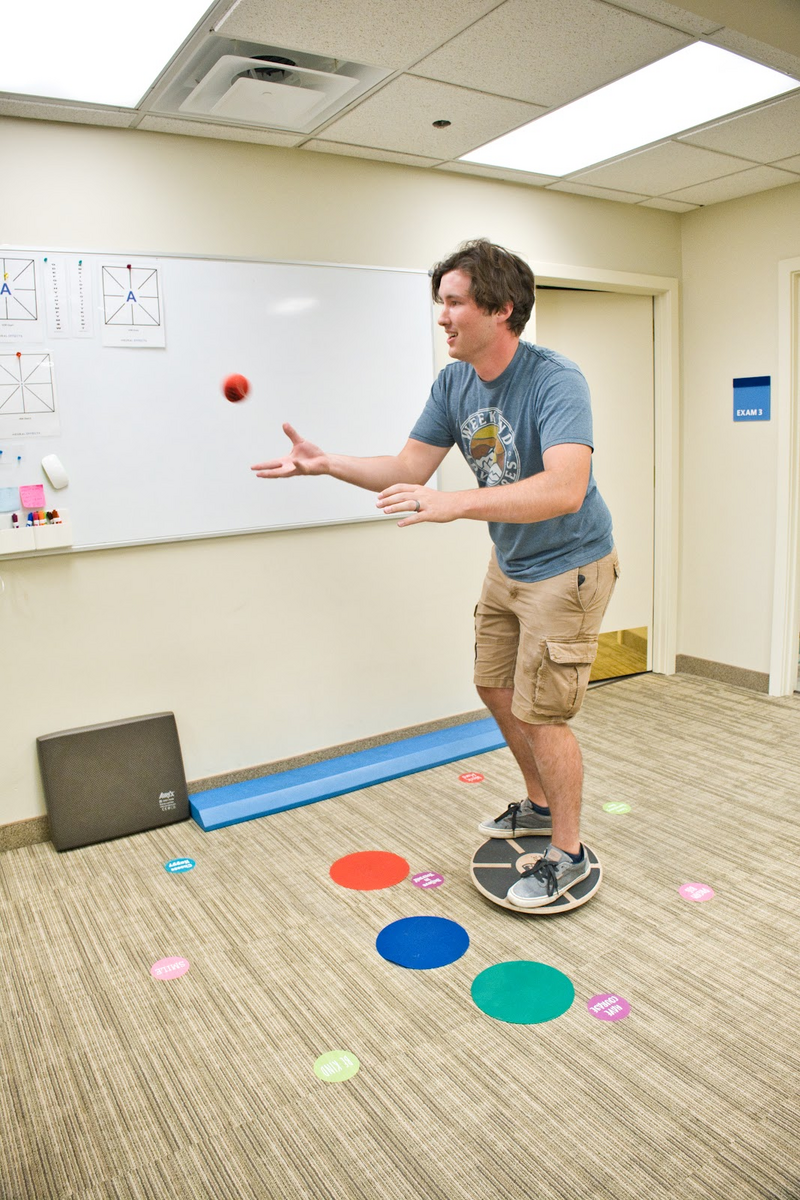
When it comes to treatment, most clinics provide only one type of therapy. Some only provide diagnosis with no follow up. The most common treatment approach is physical therapy, which may or may not include vision and vestibular therapy. For many patients, this approach is sufficient to treat symptoms.
At Neural Effects, we find more success by using a combination of physical exercise and multiple therapies to boost recovery. Some of the therapies we use include:
- Physical therapy and cardio to improve blood flow to the brain. The aim is to take advantage of a mechanism in the brain called post-exercise cognitive boost (PECB). When you exercise, your brain releases neurochemicals that can “boost” the way information is transmitted across brain cells, stimulating the way you learn and process information. We guide you through aerobic exercise and breathing exercises to keep your activity below your symptom threshold.
- Neuromuscular therapy addresses symptoms caused by neck problems. It involves soft tissue massage to release areas of strain and to help calm your nervous system post-injury.
- Vision therapy helps patients with a variety of issues with their vision, such as blurry vision and eye tracking problems.
- Vestibular therapy focuses on balance and posture problems. It addresses symptoms like dizziness and lightheadedness through a series of exercises to enhance gaze and postural stability.
- Cognitive therapy targets cognitive issues, such as memory loss and difficulty concentrating. It uses activities such as finding hidden patterns, solving word logic puzzles, and memorizing images.
As a general rule, our patients attend two or three one-hour sessions per week for a minimum of two weeks, but the exact plan can be adjusted according to each patient’s needs.
Our therapists also meet with you at the end of each session to offer you a list of exercises to complete at home. Typically, this includes cardio exercises, cognitive games, and breathing techniques. Doing these exercises at home increases your chances of a complete recovery after your concussion.
If you live in Provo, Salt Lake City, or anywhere else in the Utah Valley area, we can help you recover from your concussion and reduce your chance of long-term symptoms. We are in network for most types of medical insurance. Schedule your evaluation today.
Sports Concussion Services
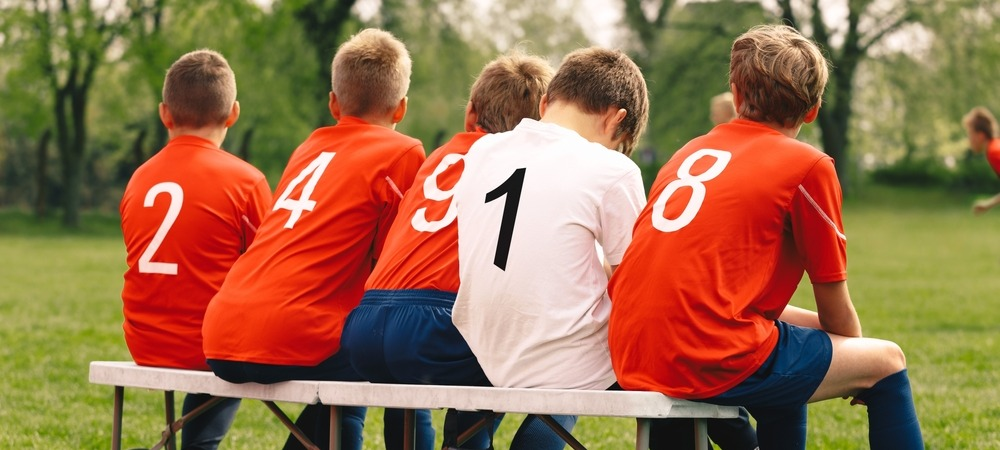
Some clinics specialize in sports-related concussion, offering baseline testing and return to play services for elite and student athletes alike.
Baseline testing involves taking a cognitive test at the beginning of the season to establish a normal value for each player. If that player suffers an injury that may have caused a concussion at any point during the season, they retake the test. These measurements can be helpful in establishing whether there was a concussion and which systems were affected.
Baseline testing is most commonly used in contact sports, but is beneficial for anyone routinely at risk for concussion. At Neural Effects, we don’t offer baseline testing for our patients, but we will take the results of baseline testing into consideration when designing your treatment plan.
If players suffer a concussion, they need to follow a strict return to play procedure before being allowed to train and compete again. Typically, these services are used by high school, university, and professional athletes. Often, the clinic will coordinate with the student’s coach or athletic trainers during recovery time. Many schools follow protocols based on the HEADS UP management of concussion resources on the Centers for Disease Control and Prevention (CDC) website.
Further reading: Modern Treatment for Concussion in Sports
How Much Does Concussion Treatment Cost?
The cost of concussion treatment varies depending on where you go for treatment. In general, it will be more expensive to visit the ER for medical imaging than to get your diagnosis at a concussion clinic. Your cost will also vary depending on what treatment is covered by your insurance plan.
A recent study calculated that, on average, treating concussions costs $800 per concussion for professional athletes. Although the authors noted that visiting the ER or experiencing a greater number of symptoms after the concussion significantly increased the cost of diagnosis, getting treatment to prevent long term complications — like PCS — reduced overall costs.
At our clinic, we accept most major insurance plans. Most patients pay under $50 per appointment, but the exact number each person pays varies depending on the combination of their copay, co-insurance, or deductible. We offer payment plans for insured patients who need help fitting the cost of treatment into their budgets. If your insurance doesn’t cover concussion treatment (a rare situation these days), or if you have a high deductible and few other medical expenses, you might prefer the discounted self-pay option. Our team can discuss what makes the most financial sense for you.
What to Avoid When Seeking Concussion Treatment
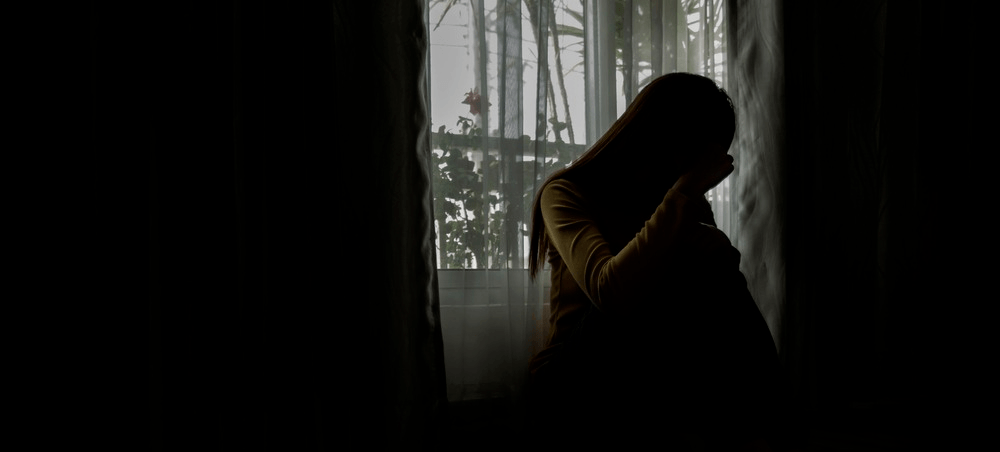
When searching for a concussion clinic, here are a few red flags to watch out for:
Outdated Advice
If the advice you receive in a concussion clinic is to stay in a dark room until symptoms subside, you’ll know they’re not following current concussion treatment best practices. For a long time, cocooning (complete rest) was the standard treatment, but recent evidence shows that it doesn’t help patients get better and may even hinder their recovery.
Reliance on Medication
If you find that your chosen provider relies heavily on different medications to treat symptoms like headaches, nausea, or neck pain, then it may be time to look for another treatment provider. Medication can be useful to treat certain symptoms in the short term, but it’s not a cure for your concussion and may even exacerbate other symptoms.
Further reading: Medications and post-concussion syndrome
Cure-all Treatment Claims
There are some clinics that will promise they can treat a variety of conditions, from autism to concussions, using the same treatment and the same team. Be cautious about these places. Make sure you find a clinic with an experienced team of healthcare providers who specialize in treating concussions.
What to Know about Concussion Treatment at Home

It is possible to recover fully at home without seeing a doctor, but why risk long-term consequences? It is much easier to treat concussion symptoms during the first few weeks after an injury than months or even years later.
That said, there are ways you can boost your recovery at home, both during and after your formal treatment:
Eat a balanced diet: Nutrition is often overlooked in concussion recovery. However, the brain needs energy and nutrients to heal. Studies have shown that TBI patients with a poor diet are more likely to have a worse outcome compared to those with a higher nutrient intake. Following a healthy and balanced diet can improve your recovery after a mild TBI and continue to boost brain function as long as you follow it.
- Don’t change your caloric intake. This is not the time to diet.
- Increase your protein intake. Protein is involved in cell and tissue repair. Give your brain what it needs to repair itself.
- Avoid processed fatty and sugary foods, as well as excessive amounts of alcohol and caffeinated drinks.
- Increase your intake of omega 3 fatty acids. These fatty acids control inflammation and promote healthy cell structure. Eicosapentaenoic acid (EPA) and Docosahexaenoic acid (DHA) can be found in several fish, including salmon, mackerel, and sardines.
- Eat plenty of fruit and vegetables, which are rich in vitamins and minerals. Many of these have antioxidant properties that can be very useful as the brain repairs itself.
Exercise regularly: Regular physical activity as soon as safely possible (48 hours after your concussion) speeds up recovery and improves symptoms. You can try low impact exercise using a stationary bike or a treadmill. Modern models have variable programs allowing you to adjust speed, incline, and resistance. Start with short bursts of cardio followed by periods of controlled breathing and rest. Alternatively, you can go out for a walk. Even short distances can help your brain heal. As you improve, you can make it more challenging by choosing a harder terrain or adding intervals of jogging.
Follow a good bedtime routine: A good night’s sleep is essential when you’re recovering from a concussion. It allows you to rest both body and mind and helps your brain to heal.
- Keep the same routine every day, even on weekends and holidays. You need to go to bed and get up at the same time every day.
- If you need it, take a short nap during the day (but no longer than 20-30 minutes).
- Don’t use electronic devices in bed.
- Avoid caffeine and alcohol in the afternoon. (Avoiding it altogether while you recover is best.)
Identify and avoid triggers. Bright lights, loud noises, and even certain smells can trigger concussion symptoms while you’re recovering. At first, the best way to deal with this is to identify what your triggers are and find ways to avoid or minimize exposure. For example, wear sunglasses if bright sunshine gives you headaches, or avoid crowded and noisy locations if they make you dizzy. Gradually, however, you need to expose yourself to these situations so that your brain can get used to normal activities again.
Take care with medication: During the first 24 hours after your concussion, you should avoid medications that increase the risk of bleeding in the brain. These include aspirin, ibuprofen (Advil), and naproxen sodium (Naprosyn, Aleve). If you’re experiencing headaches, you can take acetaminophen (Tylenol). Afterwards, you can take ibuprofen (Advil) and naproxen sodium (Naprosyn, Aleve), which are usually more effective to treat headaches.
Do therapy exercises at home: You can do a few therapy exercises at home without the need for expensive equipment. In another blog post, we’ve suggested 13 different exercises covering vision, neuromuscular, vestibular, cognitive, and physical therapy. These exercises should not be seen as a replacement for a proper medical assessment and treatment, but they can be used to supplement your therapy at home.
Where to Get Concussion Treatment Near You
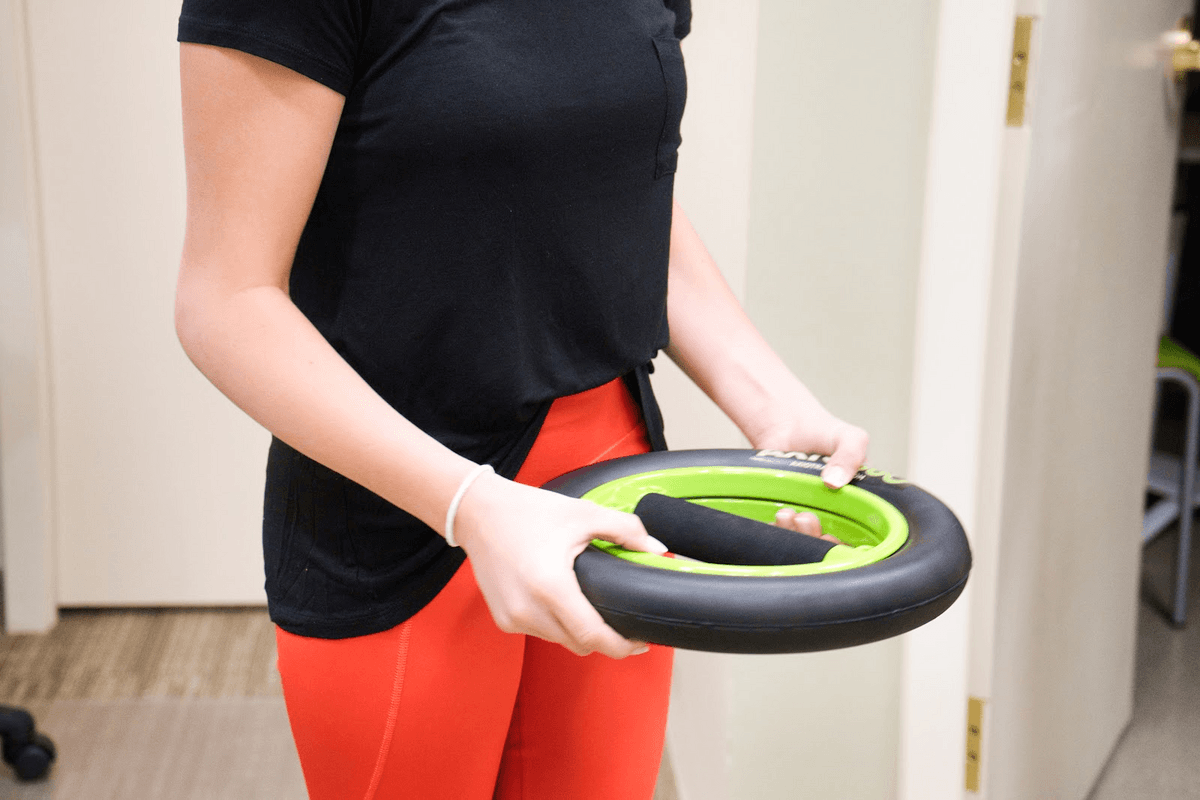
If you (or a loved one) have suffered a concussion and are looking for a concussion clinic, you can find below a short list of concussion clinics currently operating in the U.S.
If you’re in Utah, we encourage you to contact Neural Effects. Our clinic offers something that not many other concussion clinics offer: a combination of cognitive and physical therapy to enhance the restorative process in your brain. This approach produces better results than receiving each therapy in isolation.
If you live in Provo, Salt Lake City, or anywhere else in the Utah Valley area, we can help you recover from your concussion and reduce your chance of long-term symptoms. We are in network for most types of medical insurance. Schedule your evaluation today.
Concussion Clinics by State
Finding a particular concussion clinic on this list does not mean we recommend their services or endorse their approach. This list should be seen as a starting point for your search for a concussion clinic. Before you commit to a clinic, make sure you research what type of treatment they offer so you can make an informed decision.
Concussion Specialists in Alabama
- Lemak Health
- Children’s of Alabama Concussion Clinic
- CSM Champion Sports Medicine (specialized in sports-related injury with physical therapy)
- UAB Spain Rehabilitation Center
- Southern Orthopedic Surgeons (physical therapy)
Concussion Specialists in Alaska
- List of known concussion healthcare providers in Alaska
- PeaceHealth Southwest Medical Center Sports Concussion Rehabilitation Program
- Alaska Neurology Center (walk-in clinic)
- Anchorage Alaska Brain Injury Doctors
- Building Blocks Rehab (pediatric physical, occupational, and speech therapy)
Concussion Specialists in Arizona
- Mayo Clinic
- Banner Health
- SPARCC (specialized in sports-related injury)
- Barrow Neurological Center
- Neuro & Brain Performance Centers
Concussion Specialists in Arkansas
- University of Arkansas Schmieding Developmental Center
- Arkansas Neuropsychology and Behavioral Health (specialized in cognitive rehabilitation)
- Baptist Health
- FYZICAL Therapy and Balance Centers
Concussion Specialists in California
- UCSF Sports Concussion Clinic
- Stanford Brain Performance Center
- UCSD Sports Concussion Clinic
- Concussion Medical Clinic
- Cottage Health
- Pro-PT Physical therapy
Concussion Specialists in Colorado
- Banner Health
- Next Level Sports Performance
- Colorado Concussion Clinic
- Concussion Program at Children’s Hospital Colorado
- Dynamic Mobility and Balance Center
Concussion Specialists in Connecticut
- Greenwich Sports Medicine at Twin Rinks
- Gaylord Center for Concussion Care
- Advanced Concussion Solutions
- New England Institute for Neurology and Headache
- Physical Therapy and Sports Medicine Center
- Ahlbin Rehabilitation Center
Concussion Specialists in Delaware
- Nemours Children’s Health
- Christiana Care Health System
- Mid-Atlantic Concussion Alliance
- Phoenix Physical Therapy
- ATI Physical Therapy
Concussion Specialists in Florida
- Mayo Clinic
- Nicklaus Children’s Hospital (pediatric care only)
- Holy Cross Health
- University of Miami Concussion Program
Concussion Specialists in Georgia
- Northside Hospital Orthopedic Centers
- Children’s Healthcare of Atlanta
- The Concussion Center
- Southeast Georgia Health System
- ATI Physical Therapy
Concussion Specialists in Hawaii
- Imua Physical Therapy
- Hawaii Pacific Neuroscience
- Hawaii Sports and Balance Center
- Doctors for concussion in Honolulu
- FYZICAL
Concussion Specialists in Idaho
- St. Luke’s
- St. Alphonsus (STARS) Concussion Program
- Eastern Idaho Spine, Sports, and Rehab Center
- Northwest Accident and Injury Clinic
Concussion Specialists in Illinois
- RUSH Chicago Sports Concussion Center
- UnityPoint Health
- MidAmerica Orthopedics
- AMITA Health
- Genesis
- Memorial Health
Concussion Specialists in Indiana
- NeuroHealth Services
- Community Healthcare System
- Deaconess
- Midwest Concussion Clinic
- Athletico Physical Therapy
Concussion Specialists in Iowa
- ChildServe Concussion Clinic
- UnityPoint Health
- Genesis
- Childserve (children and young adults only)
Concussion Specialists in Kansas
- C3 Comprehensive Concussion Care
- Children’s Mercy
- FIT Muscle and Joint Clinic
- Bodyworx Physical Therapy & Concussion Center
Concussion Specialists in Kentucky
- KORT
- Neuro Restorative (not specialized in concussion treatment, but offers physical, occupational, and speech therapy)
- Kentucky Neuroscience Institute
- Benchmark Physical Therapy
- Aptiva Health
Concussion Specialists in Louisiana
- Bayou Physical Therapy
- Gulf Coast Brain Sport and Spine
- The Neuro Medical Center
- Moreau Physical Therapy
Concussion Specialists in Maine
- Maine Health
- Neuropsychology & Concussion Management Associates
- The Portland Clinic (specialized in sports-related injuries)
Concussion Specialists in Maryland + District of Columbia
- Kennedy Krieger Institute Concussion Clinic
- MedStar
- University of Maryland Medical System
- XLNT brain support
- Elevated
- 4 Oaks Physical Therapy
Concussion Specialists in Massachusetts
- Massachusetts General Hospital Sports Concussion Clinic
- Boston Children’s Hospital
- Massachusetts Concussion Specialists
- Southcoast Health
- Five Star Sports Rehab & Physical Therapy
Concussion Specialists in Michigan
- Lighthouse Neurological Rehabilitation
- Spectrum Health
- Henry Ford Health System
- Neal Alpiner(physical rehabilitation)
- University of Michigan Concussion Center
- Munson Healthcare (student athletes only)
Concussion Specialists in Minnesota
Concussion Specialists in Mississippi
- UMMC Health Care
- Baptist Concussion Center
- Elite (specialized in physical therapy)
- FYZICAL
Concussion Specialists in Missouri
- MU Health
- St. Francis Healthcare
- Mercy Clinics
- Steven D Stahle
- Barnes Jewish Hospital
- ATI Physical Therapy
Concussion Specialists in Montana
Concussion Specialists in Nebraska
- Nebraska Medicine
- Columbus Community Hospital Concussion Management Clinic
- FYZICAL Clinics
- Children’s Hospital and Medical Center
- Methodist Concussion program
Concussion Specialists in Nevada
- Anders and Associates Physical Therapy
- Neurology center of Las Vegas
- Barton Center for Orthopedics and Wellness
- Nevada Sports and Spine
Concussion Specialists in New Hampshire
- Access Sports Medicine & Orthopaedic Clinics
- Core Physicians
- New Hampshire Neurospine Institute
- Access Sports Medicine & Orthopedics
Concussion Specialists in New Jersey
- Atlantic Health System
- Hackensack Meridian Health
- New Jersey Concussion Center
- Sports Concussion Center of New Jersey
- Balance and Concussion Specialists Center
- Good Shepherd Rehabilitation
Concussion Specialists in New Mexico
Concussion Specialists in New York
- Match Fit Performance
- NYU Langone Health
- NYC Traumatic Brain Injury Center
- Concussion Management of New York
- Professional Physical Therapy
Concussion Specialists in North Carolina
- Duke Sports Concussion Clinic
- OrthoNC Concussion Clinic
- WakeMed Concussion Services
- UNC Center for Rehabilitation Care of Raleigh
- Triangle Visions Optometry (vision therapy only)
Concussion Specialists in North Dakota
- Sanford Health
- Optimum Therapies of North Dakota
- North Dakota Brain Injury Network
- Apex Physical Therapy and Wellness
- Kids in Motion (pediatric only)
Concussion Specialists in Ohio
- Cleveland Clinic
- Nationwide Children’s Concussion Clinic
- Ohio State University Wexner Medical Center
- Orthopaedic Associates of Zanesville
- Mary Rutan Hospital
- Cincinnati Children’s
- Riverview Eye Associates (vision therapy only)
Concussion Specialists in Oklahoma
- Wesley Hospital Children’s Concussion Clinic
- Oklahoma Physical therapy
- Life Motion
- Select Physical Therapy
Concussion Specialists in Oregon
Concussion Specialists in Pennsylvania
- UOC Comprehensive Concussion Care Clinic
- UPMC Sports Medicine
- Penn Medicine
- LVHN Head Trauma and Concussion Program
- Penn Highlands Healthcare
- Good Shepherd Rehabilitation
Concussion Specialists in Rhode Island
Concussion Specialists in South Carolina
Concussion Specialists in South Dakota
Concussion Specialists in Tennessee
- Vanderbilt Sports Concussion Center
- Knoxville Orthopaedic Clinic
- Tennessee Sports Medicine Group (physical therapy)
- The Next Level
- Foothills Physical Therapy & Sports Medicine Center (physical therapy)
- Murfreesboro Medical Clinic & Surgicenter (children and young adults)
Concussion Specialists in Texas
- UT Southwestern
- Houston Methodist Concussion Center
- Texas Health
- IRONMAN Sports Medicine Institute
- FYZICAL
Concussion Specialists in Utah
Concussion Specialists in Vermont
Concussion Specialists in Virginia
Concussion Specialists in Washington
- Providence Health & Services
- MedStar Sports Medicine
- Swedish
- Washington State Healthcare Providers
- Lake Washington Physical Therapy
- Peak Medicine
- WAPT Rehab
Concussion Specialists in West Virginia
- Marshall Sports Medicine Institute
- WVU Medicine Sports Medicine Center
- Charleston Area Medical Center
- Inova
- In Motion Physical Therapy
Concussion Specialists in Wisconsin
Concussion Specialists in Wyoming
- Campbell County Health Rehabilitation Services
- Spine and Injury Clinic of Laramie
- Teton Physical Therapy
- FYSICAL
If you live in Provo, Salt Lake City, or anywhere else in the Utah Valley area, we can help you recover from your concussion and reduce your chance of long-term symptoms. We are in network for most types of medical insurance. Schedule your evaluation today.
